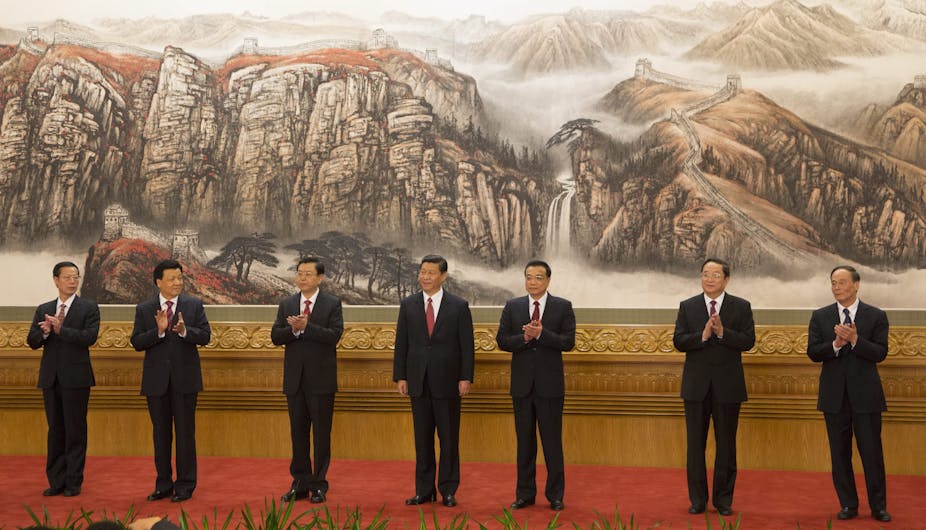What will the Asian Century mean for public administration in Australia? This probably isn’t the first question that occurs to people pondering the implications of shifting economic and political power from West to East. But it’s a more important question than it sounds.
That’s why the authors of the Asian Century White Paper have proposed that by 2025, a third of the senior leadership of the Australian Public Service will have deep knowledge of Asia.
Achieving this requires a new approach to the continuing professional development of public servants, including building in opportunities to study and work elsewhere in Asia as a matter of course. This is a significant practical and cultural challenge for a country more used to receiving study delegations from countries in Asia than sending them.
It also requires that we pay attention to the content of public education so that all potential public servants have a much better grounding in Asian language, histories and cultures.
But it doesn’t stop with language teaching. Deepening Australian public servants’ understanding of the traditions and practices that inform other nations’ systems of public administration could prove to be an important mechanism for what John Lenarcic calls “learning to think in another culture”.
This in turn could lead to an exchange of ideas about the nature of public administration itself in Australia and beyond, how it is organised and the respective roles of politicians, public servants and citizens.
This idea might sound fanciful to hard-boiled public servants who have observed the almost ceaseless promotion of “new public management” strategies across public or civil service systems throughout the world. The ubiquity of new public management, which sees ministers as “customers” and citizens as “consumers” is partly a result of a particular economic orthodoxy. It continues to exert a powerful influence, even though many of its key tenets have fallen out of favour.
This approach is the source of considerable concern among some Asian scholars, who are frustrated with what they consider to be the perpetuation of Anglo-Saxon ideas and norms into Asian countries regardless of their unique cultural, political, and societal backgrounds.
This problem persists partly because so many Asian students continue to be educated in the West. This emphasises the salience of repeated calls for an alternative approach rooted in Asian philosophies and cultures.
While this concern is well founded there is evidence to suggest that public management is always tempered by context, wherever it is implemented. My own research across Europe, South America, Africa and Asia found considerable variation in public management determined by local contextual factors including long-standing public service traditions.
Confucianism is often cited as a philosophy that continues to be influential in parts of Asia. Research from Thailand suggests that the deep-seated Confucian ethical values generated a particular hybrid system that remained largely intact despite the advent of a major program of reform. This echoes historians who argue that new ideas are always diffused through their interaction with established local cultures.
Cross-cultural analysis can also help. Daniel Bell’s recent contribution on political meritocracy in China highlights a different understanding of the relationship between politicians and civil servants in that country. In contrast to the Westminster model, which privileges a clear distinction between the roles of politicians and civil servants, Bell suggests that in China the system of political meritocracy works to select both. The two are not distinguished in the same way, and in fact it is hard to do so, as officials have political power. Recent debates in Australia, Europe and the US have focused on the role of public servants and the extent to which they should exercise political power.
Appeals to meritocracy or more accurately to political guardianship are also evident in public debate in Australia and beyond when discussing “what to do” about particularly challenging policy problems such as climate change or the decline in political party membership. These appeals have been strongly resisted by scholars and others who insist that what is required is a better democracy, with more engaged and informed citizens, rather than a thinner democracy run by an elite. The relationship between public administration and democracy is central to this discussion. It is here that more instructive insights may emerge from India, a complex democracy that has its own experience of how processes of “modernisation” may risk the loss of cultural identities.
The discussion of the relationship between democracy and public administration is an important reminder to not to romanticise Asian traditions. But it does suggest that the impact of the trends outlined in the Asian Century White Paper will be more significant than we appreciate. Public administration is as likely to be affected by the Asian Century as business and civil society, and it’s time we got prepared.

